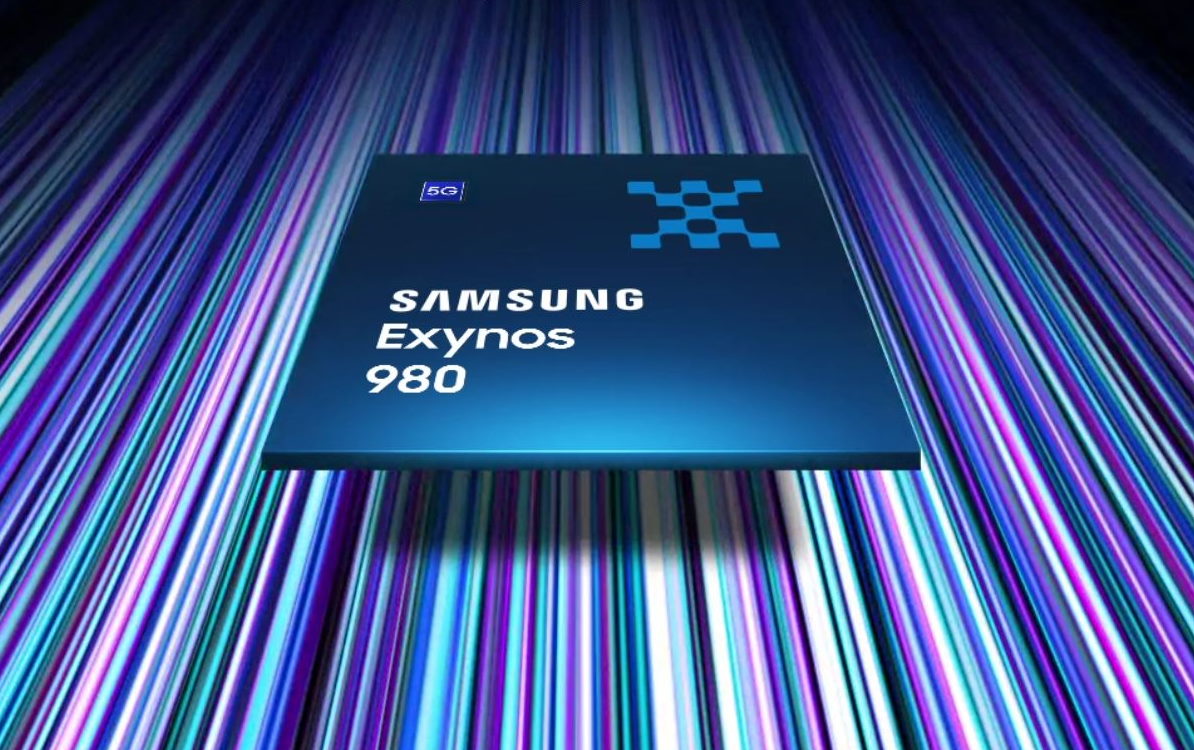Samsung Exynos 980 Launches With 5G Modem, Wi-Fi 6, Powerful AI Processor
Samsung revealed its first system-on-a-chip (SoC) that comes with an integrated 5G sub-6GHz band modem. The chip also features a powerful Neural Processing Unit (NPU) with a performance of 5 teraops per second (TOPS), which is 2.7x times higher than Samsung’s previous-gen NPU.
Manufacturing Process
Samsung will manufacture the Exynos 980 using its 8nm process, which provides an 18% density increase over the company’s previous 10nm process generation. This, along with the integration of the 5G modem into the SoC, as opposed to using a separate modem, should significantly improve the density of the whole package. This, in turn, should give Samsung, and potentially any third-party manufacturers that might buy Samsung's Exynos chips, some cost savings.
Even so, the Exynos 980 may suffer in efficiency compared to the competition that may have already moved to a 7nm process by the time the Exynos 980 ships in devices (by mid-2020).
Core Designed Based on Arm Cortex-A77
The Exynos 980 uses Arm Cortex-A77 and Cortex-A55 CPU cores, which seems a move away from the company’s own custom core designs. Qualcomm has been benefiting from Arm’s latest high-performance and efficient CPU designs, such as the Cortex-A76-powered Snapdragon 855.
Meanwhile, Samsung has been left behind performance- and efficiency-wise with its previous-gen Exynos chips. The move to Cortex-A77, as well as the company’s plan to use AMD’s new RDNA GPU technology in its mobile devices, is likely Samsung’s plan to beat Qualcomm in the medium-term.
The modem supports up to 3.55Gbps downlink speeds via a combination of 2 component carrier aggregation (2CC) LTE and 5G. The modem is also joined by next-generation Wi-Fi 6 (also called 802.11ax), which also promises high-speeds over the 2.4GHz band (basically it’s a direct successor to 802.11n).
Integrated 5G Sub-6GHz Modem
One of the most important features that come to Exynos 980 is the integration of a 5G modem, which until now was a separate unit. Otherwise, it would have delayed the launch of the previous SoCs. Plus, the 5G standard is still about a year away from being finalized. However, this hasn’t stopped wireless carriers and smartphone makers from advertising the feature to customers.
Get Tom's Hardware's best news and in-depth reviews, straight to your inbox.
5 TOPS NPU
Besides the integrated 5G modem, the NPU may be one of Exynos 980’s strongest features. With a performance upgrade of 2.7x over the previous generation, we should see some impressive features from both Samsung and third-party app makers that take advantage of it in the coming year.
For now, Samsung plans to use it to “secure user authentication, content filtering, mixed reality, intelligent camera, and more.” All of these features can be implemented on the device, as opposed to having the same data being analyzed in the cloud, thus improving user privacy and security, according to Samsung.
Camera, GPU, Codec Support
The Exynos 980 image signal processor (ISP) also supports up to five different camera sensors, three of which can run concurrently, as well as up to 108MP resolution. Not so coincidentally, Samsung recently announced a 108MP camera sensor. Xiaomi has already committed to shipping it in multiple models by the end of the year. The NPU can also aid the ISP in automatically selecting the scene, and then the ISP can apply the relevant processing algorithm to it.
Samsung’s processor will continue to use Arm’s Mali-G76 GPU, just like in the previous Exynos 9820 generation. The new SoC should come with a more powerful “top of the line” variant that should have more cores and/or higher clock speed.
Exynos 980 also features a multi-format codec (MFC) that supports encoding and decoding of 4K UHD video at 120 frames per second (fps). Samsung didn’t mention whether or not it will support the next-generation and open-source AV1 video codec in hardware. Google has already said that the new Android 10 will support AV1 in software, but it should run more efficiently devices that come with hardware decoders.
Lucian Armasu is a Contributing Writer for Tom's Hardware US. He covers software news and the issues surrounding privacy and security.
